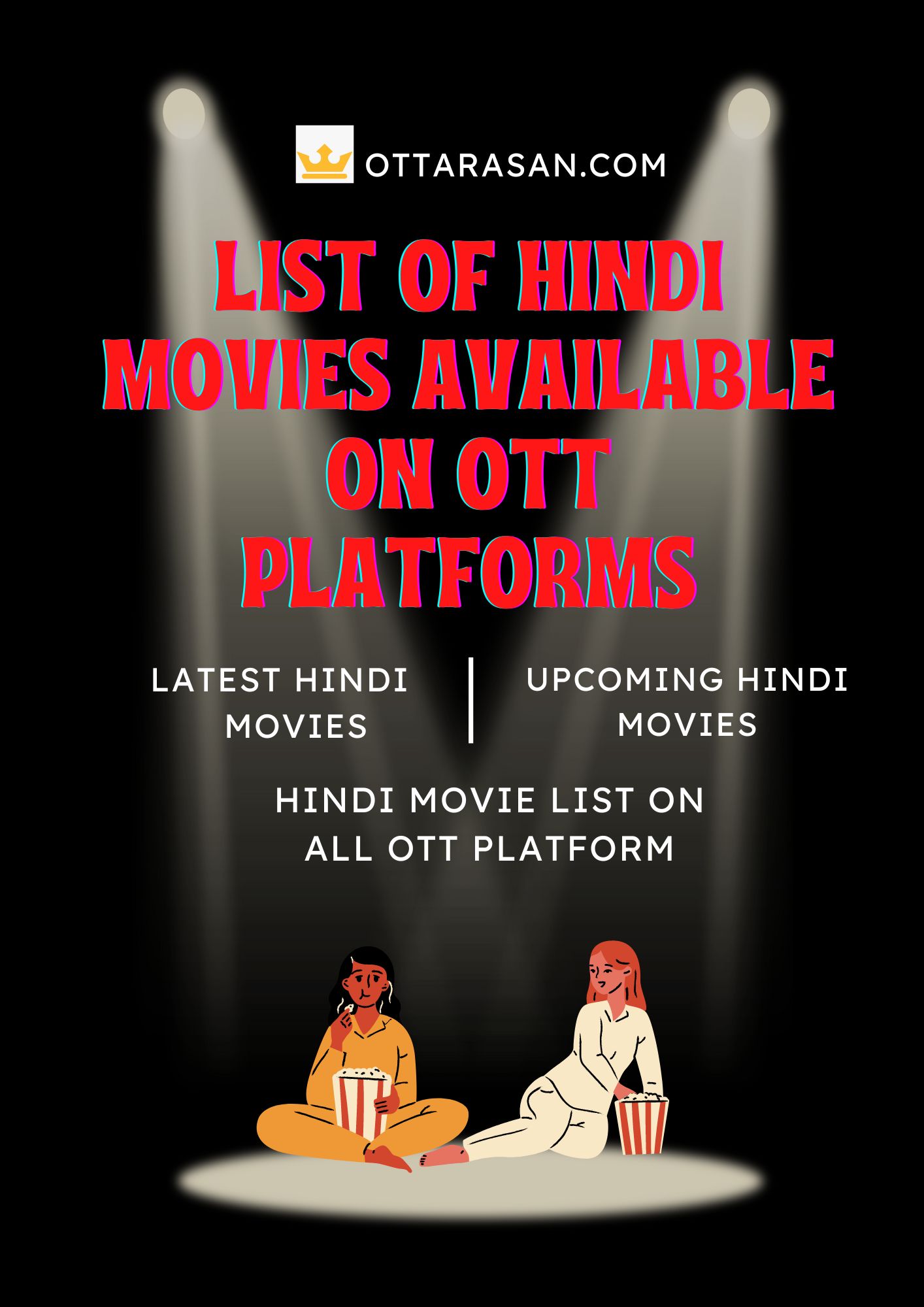Hindi movies have long been a cornerstone of global cinema, captivating audiences with their vibrant storytelling, unforgettable music, and larger-than-life characters. From the golden era of black-and-white films to the modern-day blockbusters, Bollywood has consistently delivered cinematic masterpieces that resonate with audiences worldwide. Whether you are a die-hard fan or a curious newcomer, the world of Hindi cinema offers something for everyone. This article delves deep into the fascinating world of Hindi movies, exploring their history, cultural significance, and global impact.
The allure of Hindi movies lies not only in their entertainment value but also in their ability to reflect societal changes, cultural values, and human emotions. Over the decades, Bollywood has evolved into a powerhouse of creativity, producing films that tackle a wide range of themes, from romance and drama to action and social issues. With its unique blend of art and commerce, Hindi cinema has become a cultural ambassador for India, introducing audiences worldwide to the richness of Indian traditions, languages, and philosophies.
In this comprehensive guide, we will explore the history of Hindi movies, their influence on global cinema, and the key elements that make them so captivating. We will also highlight some of the most iconic films, directors, and actors who have shaped the industry. Whether you're looking to learn more about Bollywood's evolution or seeking recommendations for must-watch films, this article has you covered.
Read also:Who Is Greta Thunbergs Boyfriend Unraveling The Mystery
History of Hindi Movies
The history of Hindi movies dates back to the early 20th century, with the release of India's first feature film, "Raja Harishchandra," in 1913. Directed by Dadasaheb Phalke, this silent film marked the beginning of the Indian film industry and laid the foundation for what would later become Bollywood. Over the decades, Hindi cinema has undergone significant transformations, adapting to changing societal norms, technological advancements, and audience preferences.
During the 1940s and 1950s, Hindi movies began to gain prominence as a medium for storytelling and social commentary. Films like "Awara" (1951) and "Mother India" (1957) not only entertained audiences but also addressed pressing social issues such as poverty, inequality, and corruption. This era also saw the rise of legendary actors like Raj Kapoor, Dilip Kumar, and Dev Anand, who became household names and icons of Indian cinema.
The 1970s and 1980s are often referred to as the "Golden Age" of Hindi cinema. This period was dominated by action-packed films starring Amitabh Bachchan, who became the quintessential "angry young man" of Bollywood. Movies like "Sholay" (1975) and "Deewar" (1975) redefined storytelling in Hindi cinema, blending action, drama, and emotion in a way that captivated audiences. The era also saw the emergence of parallel cinema, which focused on realistic storytelling and social issues.
Key Elements of Bollywood Films
Bollywood films are known for their unique blend of storytelling, music, dance, and larger-than-life characters. These elements have become the hallmark of Hindi movies, setting them apart from other film industries around the world.
Storytelling
At the heart of every Bollywood film is a compelling story. Whether it's a tale of love, revenge, or social justice, Hindi movies are known for their emotional depth and universal appeal. The narrative structure often follows a three-act format, with a clear beginning, middle, and end. This makes the films accessible to a wide range of audiences, both in India and abroad.
Music and Dance
Music and dance are integral parts of Hindi movies, often serving as a narrative device to convey emotions and advance the plot. Bollywood soundtracks are known for their catchy tunes and elaborate choreography, with songs often becoming chart-topping hits. From romantic ballads to high-energy dance numbers, music plays a crucial role in enhancing the cinematic experience.
Read also:Unveiling The Get Up Cast A Journey Through Dreams And Resilience
Iconic Characters
Bollywood films are famous for their larger-than-life characters, often portrayed by charismatic actors who leave a lasting impression on audiences. Whether it's the heroic protagonist, the villain with a heart of gold, or the wise elder, these characters add depth and intrigue to the story. The performances of actors like Shah Rukh Khan, Aamir Khan, and Salman Khan have become synonymous with Hindi cinema.
Iconic Hindi Movies
Over the years, Hindi cinema has produced countless iconic films that have left an indelible mark on audiences. These movies have not only entertained viewers but also pushed the boundaries of storytelling and filmmaking.
Sholay (1975)
Directed by Ramesh Sippy, "Sholay" is widely regarded as one of the greatest Hindi movies of all time. The film's gripping storyline, memorable characters, and iconic dialogues have made it a timeless classic. Starring Amitabh Bachchan, Dharmendra, and Sanjeev Kumar, "Sholay" redefined the action genre in Bollywood.
Dilwale Dulhania Le Jayenge (1995)
Often referred to as "DDLJ," this romantic drama directed by Aditya Chopra is a cultural phenomenon. The film's portrayal of love, family values, and tradition resonated with audiences worldwide, making it one of the longest-running films in Indian cinema history. Starring Shah Rukh Khan and Kajol, "DDLJ" remains a beloved classic.
3 Idiots (2009)
Directed by Rajkumar Hirani, "3 Idiots" is a thought-provoking comedy that challenges the traditional education system. The film's engaging storyline, coupled with stellar performances by Aamir Khan, R. Madhavan, and Sharman Joshi, struck a chord with audiences. "3 Idiots" became a global success, earning critical acclaim and numerous awards.
Bollywood Directors and Actors
Bollywood owes much of its success to the visionary directors and talented actors who have shaped the industry. These individuals have not only contributed to the growth of Hindi cinema but also inspired generations of filmmakers and performers.
Directors
Directors like Yash Chopra, Raj Kapoor, and Satyajit Ray have left an indelible mark on Hindi cinema. Their films have explored a wide range of themes, from romance and drama to social issues and human emotions. Yash Chopra, for instance, is known for his romantic films like "Dilwale Dulhania Le Jayenge" and "Veer-Zaara," which have become classics.
Actors
Bollywood actors are celebrated for their versatility and charisma. From the legendary Amitabh Bachchan to the modern-day superstar Shah Rukh Khan, these actors have brought countless characters to life on the big screen. Below is a table highlighting some of the most iconic actors in Hindi cinema:
| Name | Notable Films | Awards |
|---|---|---|
| Amitabh Bachchan | Sholay, Deewar, Piku | Multiple National Awards |
| Shah Rukh Khan | Dilwale Dulhania Le Jayenge, My Name is Khan | Padma Shri, Filmfare Awards |
| Aamir Khan | 3 Idiots, Lagaan, Taare Zameen Par | National Film Awards |
Global Impact of Hindi Cinema
Hindi movies have transcended geographical boundaries, captivating audiences worldwide. Bollywood films are now screened in over 90 countries, with a significant fan base in regions like the Middle East, Africa, and Southeast Asia. The global appeal of Hindi cinema can be attributed to its universal themes, vibrant storytelling, and cultural richness.
One of the key factors behind Bollywood's global success is its ability to blend entertainment with social commentary. Films like "Lagaan" (2001) and "Slumdog Millionaire" (2008) have introduced international audiences to Indian culture and traditions, earning critical acclaim and numerous awards. Bollywood's influence can also be seen in the growing number of collaborations between Indian filmmakers and their international counterparts.
Music and Dance in Bollywood
Music and dance are integral components of Hindi movies, often serving as a narrative device to convey emotions and enhance the storytelling. Bollywood soundtracks are known for their catchy tunes, memorable lyrics, and elaborate choreography, making them an essential part of the cinematic experience.
Evolution of Music in Bollywood
Over the years, Bollywood music has evolved significantly, reflecting changing trends and audience preferences. From the classical melodies of the 1950s to the modern-day fusion tracks, Hindi film music has consistently pushed the boundaries of creativity. Legendary composers like R.D. Burman, A.R. Rahman, and Shankar-Ehsaan-Loy have contributed to the rich musical heritage of Bollywood.
Dance in Bollywood
Bollywood dance is a unique blend of traditional Indian styles and contemporary movements. From the graceful Kathak to the energetic Bhangra, dance sequences in Hindi movies are known for their vibrancy and creativity. Choreographers like Farah Khan and Remo D'Souza have played a key role in popularizing Bollywood dance both in India and abroad.
Bollywood and Social Issues
Bollywood has often been at the forefront of addressing social issues through its films. From poverty and inequality to gender discrimination and mental health, Hindi movies have tackled a wide range of topics, sparking important conversations and raising awareness among audiences.
Films Addressing Social Issues
Movies like "Pink" (2016) and "Article 15" (2019) have shed light on pressing social issues such as gender equality and caste discrimination. These films not only entertain but also educate audiences, encouraging them to reflect on societal norms and values. By addressing these topics, Bollywood has played a crucial role in driving social change.
Future of Hindi Movies
As technology continues to evolve, the future of Hindi movies looks brighter than ever. With advancements in visual effects, sound design, and streaming platforms, Bollywood is poised to reach new heights in the coming years. The rise of OTT platforms like Netflix and Amazon Prime has also opened up new opportunities for filmmakers to experiment with storytelling and reach a global audience.
Moreover, the growing emphasis on diversity and inclusion in Bollywood is expected to bring about positive changes in the industry. Filmmakers are increasingly focusing on telling stories that reflect the diverse experiences and perspectives of Indian society, ensuring that Hindi cinema remains relevant and impactful in the years to come.
Must-Watch Hindi Films
If you're new to Hindi cinema or looking for recommendations, here are some must-watch films that showcase the best of Bollywood:
- "Sholay" (1975)
- "Dilwale Dulhania Le Jayenge" (1995)
- "Lagaan" (2001)
- "3 Idiots" (2009)
- "PK" (2014)
- "Andhadhun" (2018)
These films not only entertain but also offer a glimpse into the rich tapestry of Hindi cinema, highlighting its storytelling prowess and cultural significance.
Conclusion
Hindi movies have come a long way

